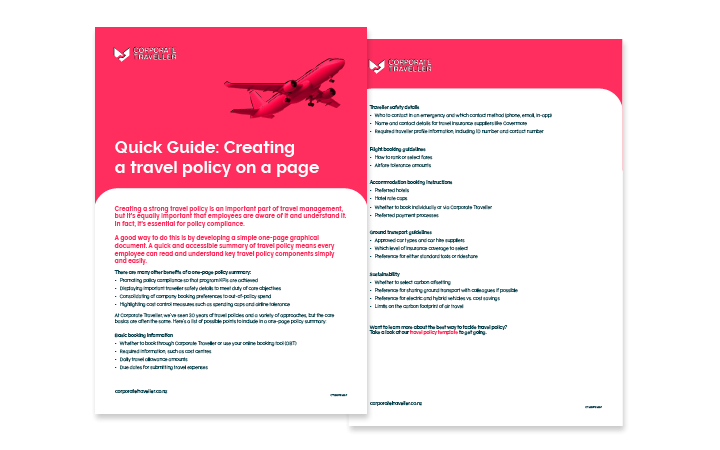
Travel Policy 101
When it comes to company travel, a travel policy brings it all to one place. It allows your travellers to make the most cost-effective choices, an important visibility tool for your managers and HR department, and it protects your people if it’s done right.
If you’re new to business travel or haven’t looked at your travel policy in a while, we’ll start with the basics and then move into the nitty gritty of corporate travel policies. We’ll touch on a few best practices for writing a travel policy, what to include, and offer plenty of resources along the way.
About Flight Centre Travel Group
The Flight Centre Travel Group is one of the world’s largest travel retailers and corporate travel managers. The company, which is headquartered in Brisbane, Australia, has company-owned leisure and corporate travel business in dozens of countries, spanning Australia, New Zealand, the Americas, Europe, the United Kingdom, South Africa, the United Arab Emirates, and Asia. ASX listed Flight Centre Travel Group (FLT) also operates the global FCM corporate travel management network, which extends to more than 100 countries through company-owned businesses and independent licensees, along with Corporate Traveller, the flagship business specific to the small-to-medium-sized enterprise sector. For more information, visit fctgl.com.